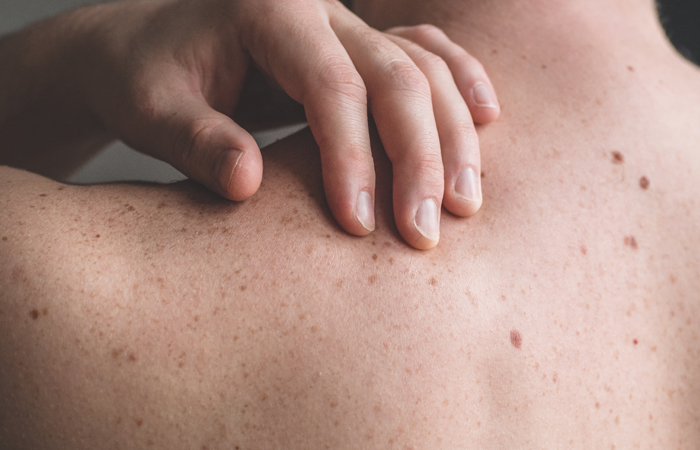In Conditions
Follow this topic
Bookmark
Record learning outcomes
This year saw the launch of the first ever ‘Women’s Health Strategy’ in England – a 10-year plan that sets out a range of commitments to improve the health of women and girls. But with one in five men continuing to die before the age of 65 – with heart disease, cancer and suicide the biggest factors – organisations such as the Men’s Health Forum are calling for a similar Men’s Health Strategy to combat this.
Coronary heart disease (CHD) is the number one killer in the UK and the most common cause of premature death, according to charity Heart UK, with more men than women dying from the disease (one in seven and one in 12, respectively). Genetically, males are also at a disadvantage due to the hormone testosterone, which is produced in larger quantities in men than in women and raises LDL cholesterol, the type that furs up the arteries and contributes to heart disease. Testosterone can also add to a depressed immune function and high blood pressure. Completing the circle of risk, high blood pressure is the leading risk factor for CHD in the UK, and the cause of around 50 per cent of heart attacks and strokes.
Lifestyle risk factors
According to the World Health Organization (WHO) there are eight key risk factors (alcohol use, tobacco use, high blood pressure, high body mass index, high cholesterol, high blood glucose, low fruit and vegetable intake, and physical inactivity) which account for as much as 61 per cent of all cardiovascular deaths and over three quarters of all CHD.
In Britain, more than a third of men (37 per cent) regularly exceed the Government’s recommendations for alcohol, almost half of UK adults eat more saturated fat than recommended, and up to 20,000 deaths in the UK from heart and circulatory diseases can be attributed to smoking.
Cardiovascular disease is also associated with gum disease. A study1 of more than 1,600 people aged over 60 linked gum disease with an almost 30 per cent higher risk of first heart attack, even after researchers adjusted for other conditions (such as diabetes and asthma), or lifestyle habits (such as smoking status, education and marriage) that are known to increase a person’s risk of a heart attack.
“Coronary heart disease is the number one killer in the UK and the most common cause of premature death”
Pharmacy interventions
As ever, there is plenty of self care advice that community pharmacy teams can recommend to help support their customers.
“Embracing a healthy lifestyle at any age can help prevent heart health troubles, and no one is ever too old or too young to begin taking care of their heart,” says Mike Wakeman, clinical pharmacist and scientific advisor for Alive! supplements. “Firstly, I would advise staff to give advice to male customers to help them quit smoking. Smoking is one of the main causes of coronary heart disease but a year after giving up, the risk of a heart attack falls to about half that of a smoker. And second-hand smoking comes in a close second. Research shows that simply inhaling smoke significantly increases the risk for coronary artery calcification.”
The next step is embracing a healthy diet. “Good dietary choices can make a big difference to many life-threatening conditions such as heart disease”, says Ali Cullen, education manager for A.Vogel herbal medicines and food supplement brands, “but the National Diet & Nutrition Survey (NDNS) shows that on average, adults eat four servings of fruit and vegetables daily with only 25 per cent of men aged 19-64 years, and 34 per cent of men aged 65 years and over, meeting the five a day recommendation.”
As high cholesterol plays a big part in heart disease, Jules Payne, chief executive of Heart UK, says pharmacy staff should encourage customers to adopt a “whole diet approach” for cholesterol management. This includes:
- Maintaining a healthy weight
- Replacing saturated fats with unsaturated fats
- Choosing wholegrain foods instead of refined starchy foods
- Eating a wide variety of plenty of fruit and vegetables
- Choosing healthy sources of protein such as low fat dairy foods, legumes, fish, nuts, seeds and poultry
- If red meat is eaten, choosing lean meat, and watch the quantity
- Aiming for two portions of fish a week, one of which should be oily – for example, salmon, mackerel, sardines and pilchards
- Eating fewer processed foods and drinks high in sugar and/or saturated fat, such as biscuits, cakes, chocolates, pastries, fizzy drinks and cordials
- Limiting high fat takeaways and ready prepared meals and cooking from scratch more often
- If alcohol is consumed, no more than 14 units a week.
Mike says it is also important to encourage men to eat plenty of fibre, which helps to lower their risk of heart disease: “The daily recommended amount of fibre is 30g a day from a variety of sources, which few people reach on a daily basis. There are two forms of fibre – soluble and insoluble. Soluble fibre dissolves and helps feed the good gut bacteria, and insoluble helps form the stool. Both are needed for a healthy heart and the good news is that plant foods generally contain both forms, with great sources including wholemeal bread, bran, oats, beans and wholegrain cereals, potatoes with their skins on, and plenty of fruit and vegetables.”
Unsurprisingly, regular exercise also has a important effect on heart health. Individuals can reduce their risk of developing heart and circulatory disease by as much as 35 per cent by being more active, according to data from Heart UK. Current UK Government recommendations are 150 minutes of moderate exercise or 75 minutes of vigorous exercise a week, or a mix of these, with Jules suggesting adding in “muscle-strengthening exercises on two or more days a week that work all the main muscle groups (legs, hips, back, abdomen, chest, shoulders and arms).”
“Exercise also helps to reduce stress symptoms, as it produces feel-good hormones in your body so that you feel better mentally and emotionally as well as physically”, says Ali, “so by exercising you’re helping your blood pressure on several levels – weight loss, increased blood flow to the heart, reduced stress and better oxygen intake”.
Sleep quality also has a role to play in protecting heart health, since regular poor sleep is linked to high blood pressure and heart disease. Over time, poor sleep can also lead to unhealthy habits including less motivation to be physically active, and unhealthy food choices.
Men and melanoma
There are around 16,700 new melanoma skin cancer cases in the UK every year, according to charity Cancer Research. In males in the UK, melanoma is the sixth most common cancer, with around 8,400 new cases a year (2016-18), meaning one in 36 UK males will be diagnosed with melanoma skin cancer in their lifetime.
A person’s risk of developing melanoma depends on many factors, including age, genetics, and exposure to risk factors (including some potentially avoidable lifestyle factors). Some melanomas develop from existing moles and the rest grow on what was previously normal skin. You can get a melanoma anywhere in the body, but in men melanomas are most common on the back.
Pharmacy staff should advise customers to see their doctor immediately if they notice a change to a mole, freckle or a normal patch of skin, as the earlier a melanoma is found, the easier it is to treat.
The ABCDE checklist explains what signs to look for:
A – asymmetrical. Melanomas are likely to have an uneven shape
B – border. Melanomas are more likely to have irregular edges
C – colour. Melanomas are often an uneven colour and contain more than one shade of black, brown and pink
D – diameter. Most melanomas are more than 6mm wide.
E – evolving. Melanomas might change in size, shape or colour, bleed, itch or becoming crusty.
Some community pharmacies offer private mole scanning services, which can be a very useful way to help identify cases of melanoma. It is a non-invasive, painless and quick process that involves scanning the mole and sending the results to be analysed by a dermatology specialist. A recent study of Boots UK’s mole scanning service showed that, of the 10,000 moles that were scanned during the study, 88 per cent required no follow-up, and of those referred for a follow-up, one per cent received a diagnosis of melanoma.
“Embracing a healthy lifestyle at any age can help prevent heart health troubles”
Supplements for heart health
There are many nutrients that can be a great addition to a heart-healthy lifestyle, according to Mike: “The vital seven are omega-3s, magnesium, vitamin B12, folic acid, grape seed extract, vitamins D and C. Many of these can be obtained through what we eat, although Government research suggests that the majority of us struggle to eat a healthy, well-balanced diet, which is why advising men to take a daily supplement is so important.”
Mike’s advice is to recommend “an evidence-backed multivitamin and multimineral supplement, preferably formulated for men, taken daily”. There are also herbal options that pharmacy staff can be confident to stock and recommend. Ali suggests:
- Artichoke which will reduce cholesterol, without any of the side effects of conventional cholesterol-lowering medication
- Hawthorn, a herb that gently rebalances blood pressure and can be taken alongside conventional heart medication so long as their doctor is informed. It needs to be taken for at least six months and has a beneficial effect on all heart tissue. It is particularly good for angina, but helps with most heart problems
- Passiflora and Valerian are both good stress herbs, allowing users to relax more effectively and deal with stressful situations, without any drowsy after effects.
As well as supplements, pharmacy staff can also help with heart health monitoring through selling equipment such as blood glucose monitors and blood pressure monitors. “Self-testing is becoming more common amongst customers, and there’s no better place to source tests and gain professional advice than at a community pharmacy,” says Cathy Crossthwaite, Numark OTC business development executive.
Through encouraging self-care, supporting with diagnoses, and providing face-to-face guidance, community pharmacy teams are the perfect one-stop-expert-shop to help support men with their heart health. Heart UK also has a range of advice guides for people looking to lower their cholesterol and protect their heart health including the cholesterol-busting foods and the Ultimate Cholesterol Lowering Plan©. Find out more via the Heart UK website.
Benefits of exercise for male mental health
As male suicides continue to account for approximately three-quarters of all suicides in the UK, fitness experts and mental health charities such as Mind are keen to encourage men to incorporate physical exercise into their daily routines in order to safeguard their mental health.
In 2019, Mind piloted a model for physical activity sessions through its Get Set to Go programme, which supports people with mental health problems to get more active. Participants found it increased their ability to take part in physical activity but also improved their social support structures and self-esteem.
“Exercise plays a crucial part in mental health as it’s an excellent way to let off steam throughout the week, release feel-good endorphins into the brain, and carve out time to reconnect with your mind. Exercise also reduces the stress hormone cortisol, which in turn stimulates our mood-boosting endorphins helping us to relax and can even lower mild symptoms of depression and anxiety,” says Dean Zwech, product development manager at Total Fitness. “Over time, fitness offers long term mental health benefits too, such as increased self-confidence, improved sleep, and general healing from the inside out – allowing you to feel strong both physically and mentally.”


